Possessed: how I made a deal with the devil
Some books you enjoy. Others move in, rearrange the furniture, and steal your milk from the fridge. It happens a lot in student digs.
The Book That Moved In
For me at nineteen, that book was The Master and Margarita by Mikhail Bulgakov—a novel where the devil strolls into Soviet Moscow, throws a party, bulldozes through the hypocrisy of the baffled Muscovites, and tears the curtain back on human nature. All in the company of a giant cat, a louche charlatan, a bowler hatted bully and a cast of lunatics set on taking over the asylum.
It’s funny, blasphemous, beautiful, and madder than a Superbowl stadium full of frogs.
A Story Within a Story
It also features a hugely poignant story of Jesus’ last days, a powerful and moving study of politics and power that is a perfect counterpoint to the antics of ‘Woland’ and his crew. It’s a story abandoned by its author, the Master, but rescued—as he is—from oblivion by the determined and romantic Margarita.
I remember being captivated by a TV drama version of the Jesus (here Yeshua Ha-Notsri) and Pilate storyline. An Incident in Judaea starred John Woodvine as Pilate, a very young Mark Rylance as Jesus and Jim Carter as the sinister head of Judaea’s secret police — it certainly got the cast it deserved. It was amazing, part humanitarian parable, part political intrigue — so imagine my amazement when I discovered this was only a fraction of the whole book it came from?
So I bought it (a big expense for a student, as the library didn’t have it) and started reading. Then I read it in the bath. The bath went cold. I read it in bed. I finished it at about 5:30 the next morning (I was a student, after all).
Totally changed my life. The next day, after some sleep, I got up and I started reading it again.
The Spirit of The Datura Press
It taught me something I’ve carried into ever since: a story can be many things at once. The Master and Margarita is a love letter, a political lampoon, a philosophical riddle, and a work of wild magic. Narcisa Before Narcisa owes more than a little of its spirit to Bulgakov’s audacity—the way he slips between worlds, pokes at authority, and makes the surreal feel everyday, and the everyday seem totally crazy.
It also has a sinister overtone. What other figure in Russia at the time held such sway over every soul? Who else could it be but Uncle Joe—Stalin himself?
And why? Because it was a call to arms, albeit an oblique one, for rebels and misfits, and so, obviously ,was banned. Written by 1940, it wasn't published in a censored form until the late 1960s and remained unavailable uncensored for decades more. (And don’t be shocked if it gets banned again!)
No surprises it’s been such a rabble rouser ever since, when Mick Jagger hit a creative stall he read it. The result? Sympathy For The Devil. Boom!
I still return to it. And every time, it feels like a slightly different book. It's certainly never quite the same: sometimes a great novel of lost love, sometimes a moving spiritual allegory, or more often than not, a Tex Avery cartoon on fast forward.
Sneaky that. But what do you expect from the Devil?
Unforgettable Lines from a Mad Masterpiece
There are simply too many favourite quotes, but these aren’t a bad start:
“Everything will be made right—that’s what the world is built on.”
“Nonsense, manuscripts don’t burn.”
“Yes, man is mortal, but that would be only half the trouble. The worst of it is that he’s sometimes unexpectedly mortal—there’s the trick!”
“Sleep will strengthen you, you will reason wisely. And you will no longer be able to drive me away. I will watch over your sleep.”
“And fact is the most stubborn thing in the world.”
“Never ask for anything! Never for anything, and especially from those who are stronger than you. They’ll make the offer themselves, and give everything themselves.”
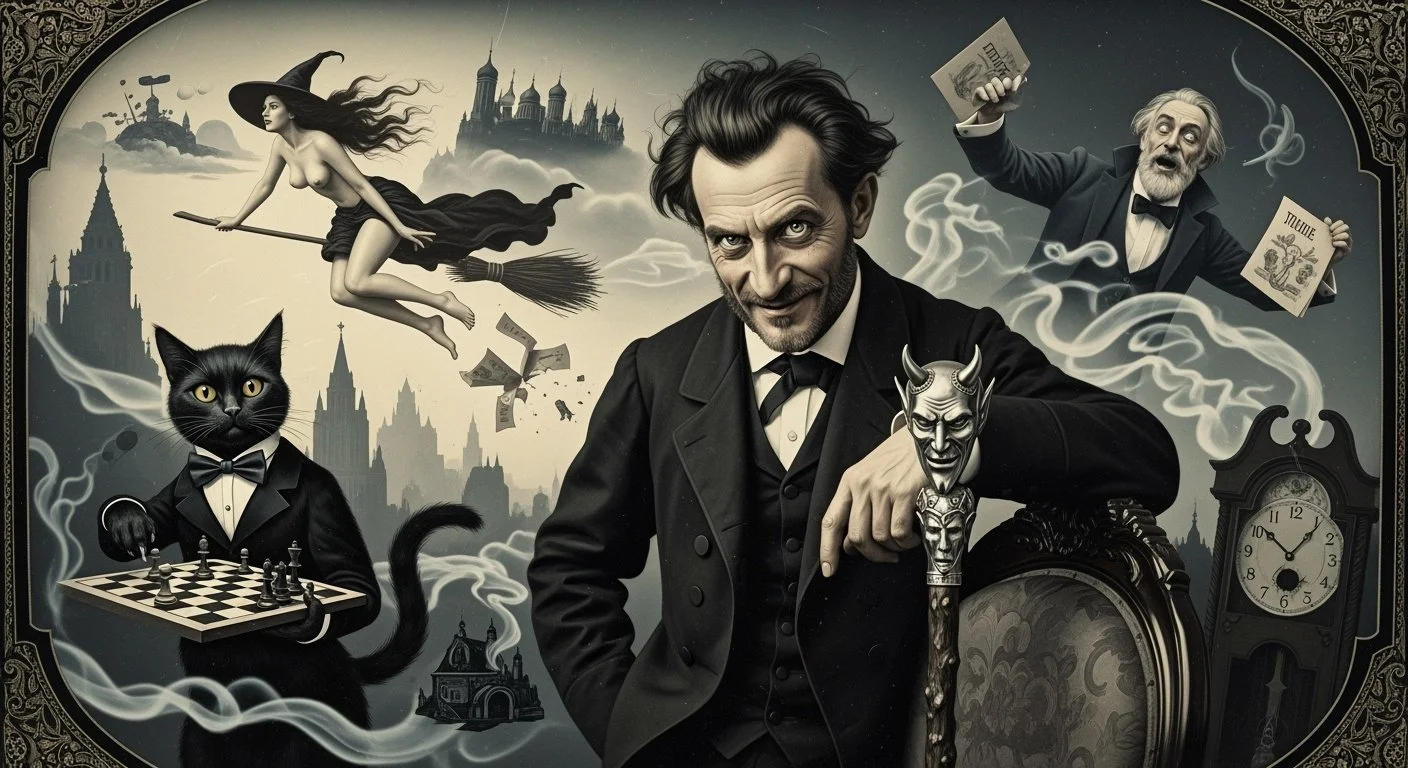
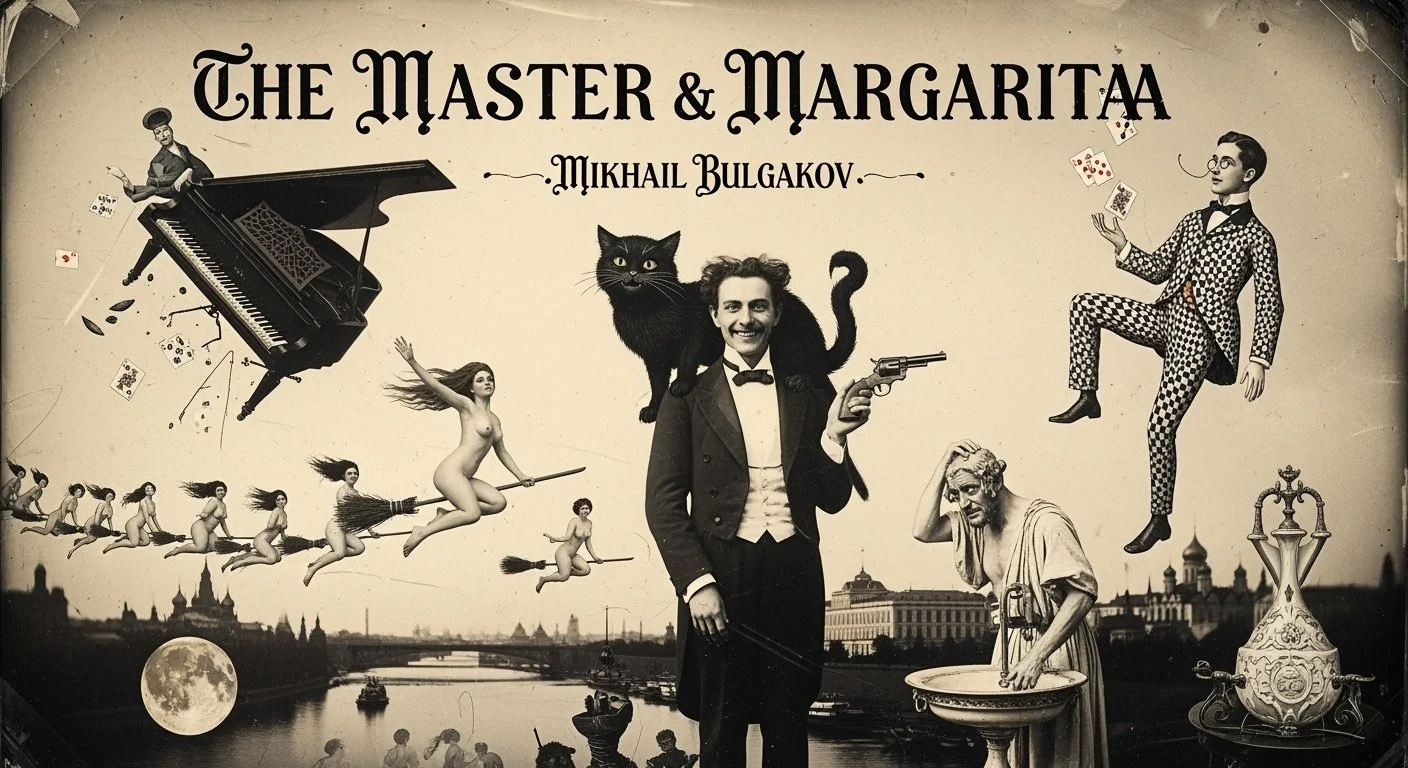
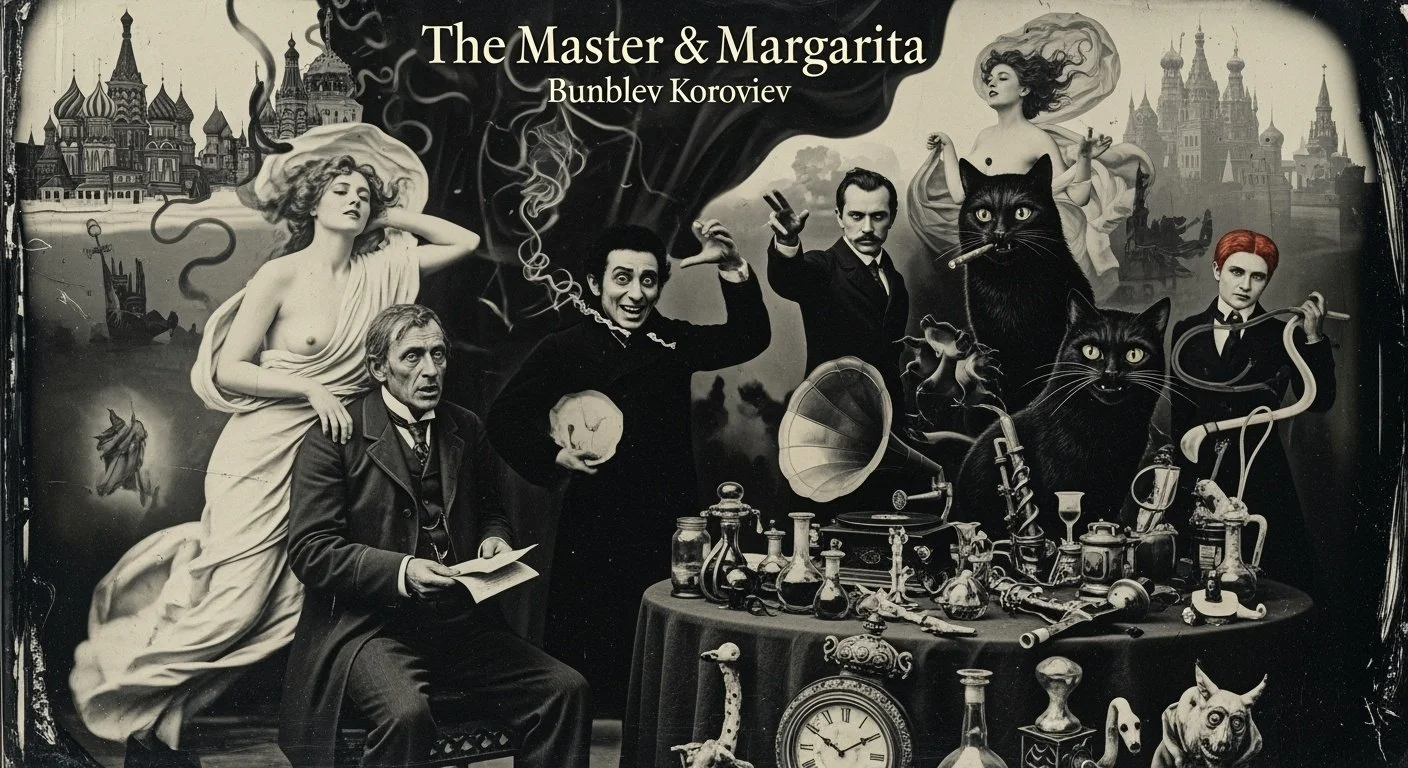

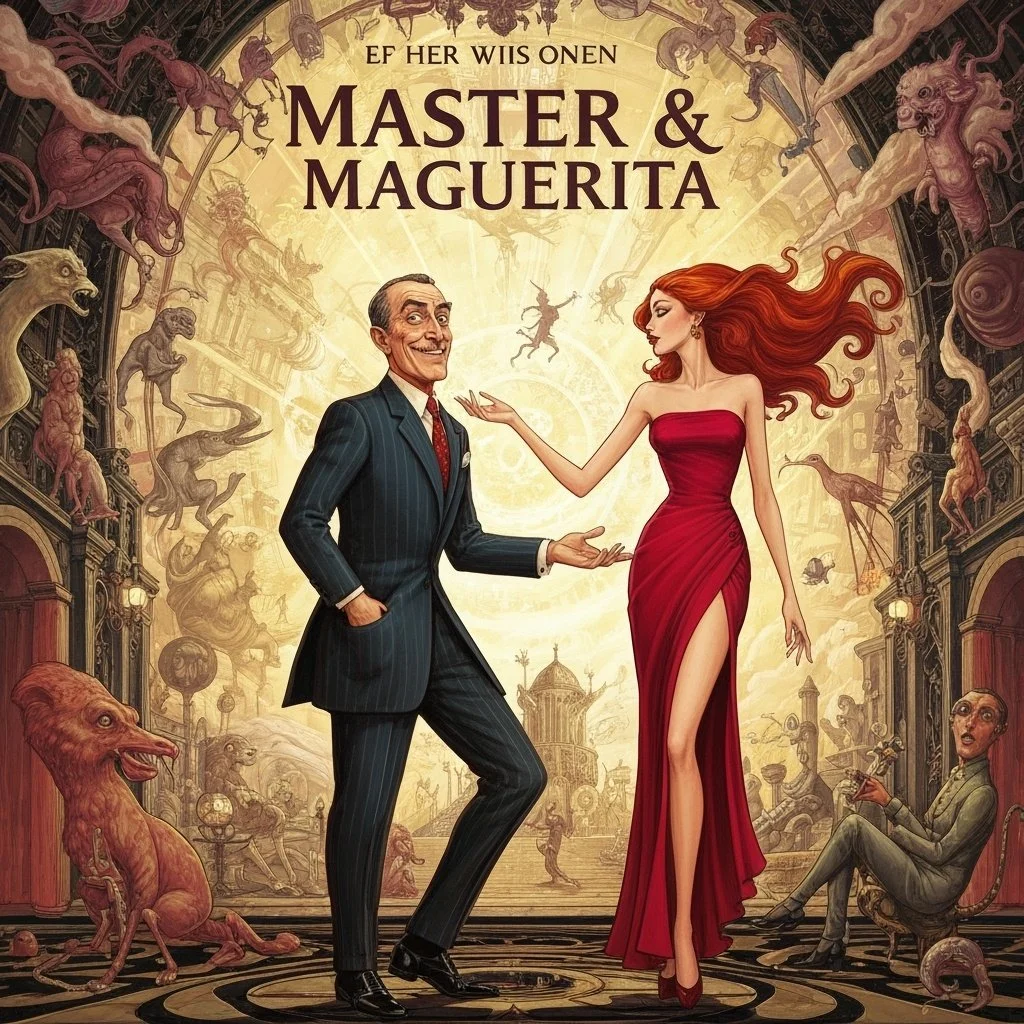


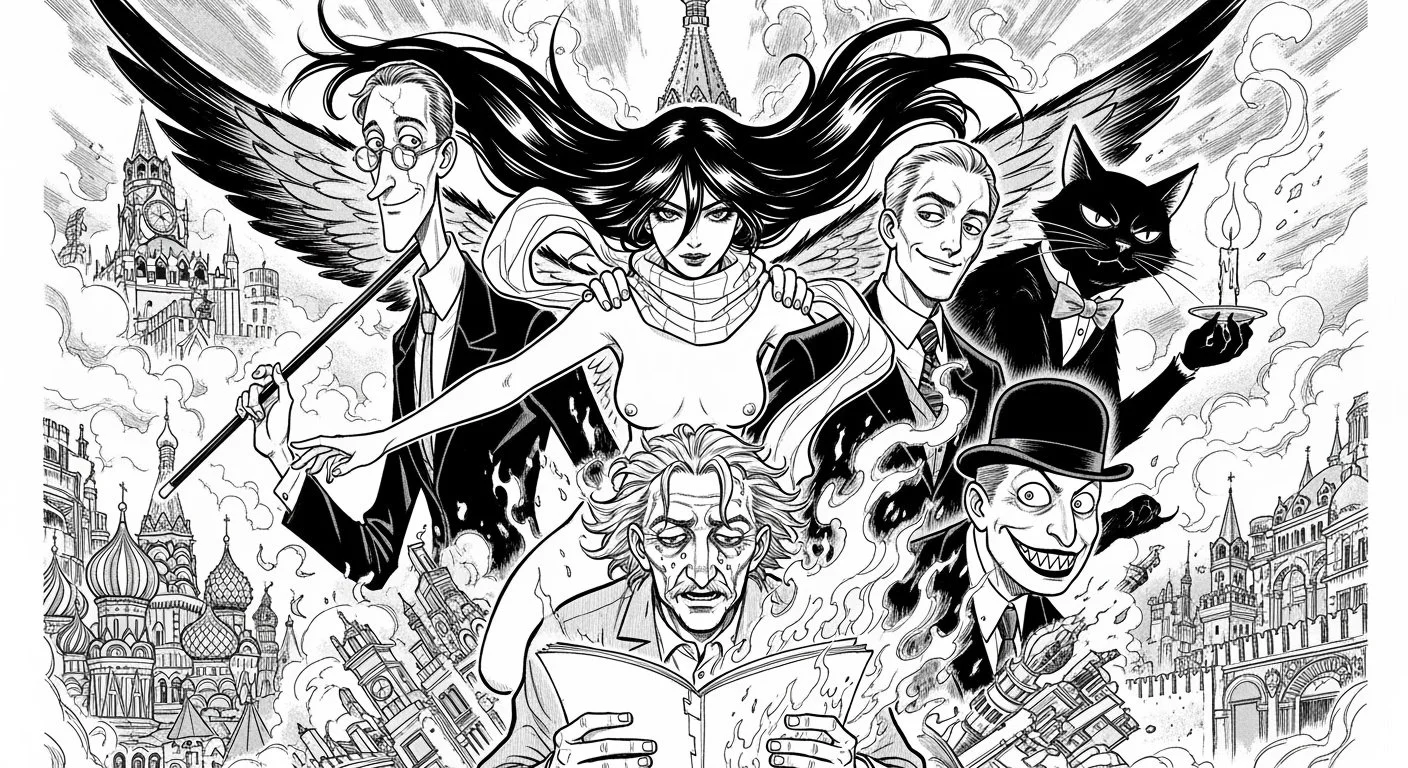
We used AI to create some alternative covers, and we have to say, they are suitably bonkers. Enjoy!
“It’s funny, blasphemous, beautiful, and madder than a Superbowl stadium full of frogs”
So. Now I want to know—what book has possessed you when you were nineteen (or ninety)? The one you still think about decades later, the one that stamped itself on your imagination, the one you kept reading as the bathwater turned cold?
Drop a line or leave a comment. I’ll share a few of your answers in the next Pressebande dispatch.
Subscribe to Pressebande, our monthly dispatch, and you’ll be the first to read new excerpts, see behind-the-scenes, and join us as we build the Datura library from the ground up.

